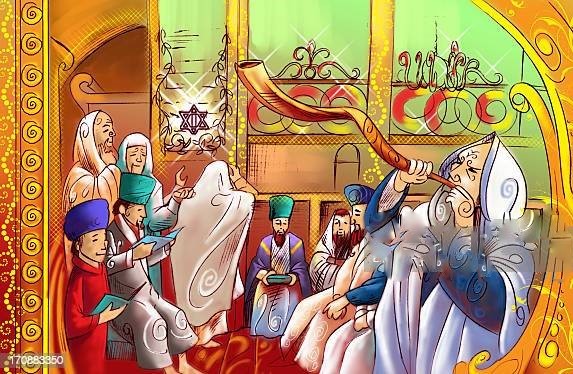SHABBAT: YESHIVAT HAVERIM – BABYLONIAN TALMUD p52

R. Janai proclaimed: “Alas for him who has no dwelling, yet strives to make the door of a
dwelling!” R. Jehudah said: The Holy One, blessed be He, created the world only for the
purpose that man should fear Him, for it is written: “God hath so made it, that (men) should fear
him” [Eccl. iii. 14].
R. Simon and R. Elazar were sitting together as R. Jacob b. Aha came passing by. Said one of
them: “Come, let us arise before him, for he is a man that fears sins.” Said the other: “Aye; let us
arise before him, for he is a son of enlightenment (a scholar).” Said the former: I tell thee that he
is a man that is afraid of sins, and thou sayest he is a scholar. Thou shouldst be mindful of what
R. Elazar said: The Holy One, blessed be He, has nothing better in the world than (men who
possess) the fear of Heaven, for thus it is written: “And now, Israel, what doth the Lord thy God
require of thee, but to fear the Lord thy God” [Deut. x. 12].
R. Ulla lectured: What does the passage mean, “Be not wicked over much” [Eccl. vii. 17]. Is it
allowed to be wicked at all? Nay, but the passage means this: If one has eaten garlic and has
acquired a bad odor, he must not eat more garlic because the bad odor is (about him) already.
Rabba b. R. Ulla lectured: It is written: For there are no fetters in them, but their strength is firm
[Psalms, lxxiii. 4]. The Holy One, blessed be He, said: “It is not enough that the wicked do not
trouble for nor fear the day of their death, but that their heart within them is as strong as a strong
fortress.” Which is similar to Rabba’s explanation of the passage: “This is their way; their
folly” [ibid. xlix. 14]. The wicked know that their manner (of living) leads them to death, and
still their kidneys wax fat (implying their blindness to the fact). Perhaps thou wilt attribute this
to their forgetfulness? Therefore it is written: “What will happen after their lives is the subject of
their sayings,” whence we conclude that while they do not repent, they continually speak of their
death.
“To spare the lamp,” etc. With whom does R. Jose agree? If he agrees with R. Jehudah, he
should declare culpable even these; and if he agrees with R. Simeon, he should declare free even
(the man who extinguishes the lamp) for the purpose of saving the wick. Said Ulla: By all means
R. Jose agrees with
[paragraph continues] R. Jehudah, but he holds that if one destroys in order to rebuild in the same
place, he is guilty (of the act) of breaking; but if one destroys, not intending to rebuild in the
same place, he is not (guilty of) breaking. R. Johanan, however, maintains that he holds as R.
Simeon; but in the case of this wick it is different, as R. Hamnunah or R. Ada b. A’haba
interpreted our Mishna that it reads “from a wick which needs singeing,” and it is such a case. R.
Simeon also agrees that it is prohibited because it is considered that he repairs a vessel. Said
Rabha: It seems that this explanation is right, as the Mishna states “to be formed,” and not a
cinder is formed (already).
 THURSDAY PRAYER: YESOD-SHACHARIT שַחֲרִית MORNING PRAYER
THURSDAY PRAYER: YESOD-SHACHARIT שַחֲרִית MORNING PRAYER THURSDAY PRAYER: YESOD-TIKKUN CHATZOT תקון חצות-TIKKUN RACHEL & TIKKUN LEAH
THURSDAY PRAYER: YESOD-TIKKUN CHATZOT תקון חצות-TIKKUN RACHEL & TIKKUN LEAH THURSDAY PRAYER: YESOD- KABBALAH MED-TIKKUN CHATZOT תקון חצות – LESSON WITH RAV MICHAEL LAITMAN
THURSDAY PRAYER: YESOD- KABBALAH MED-TIKKUN CHATZOT תקון חצות – LESSON WITH RAV MICHAEL LAITMAN